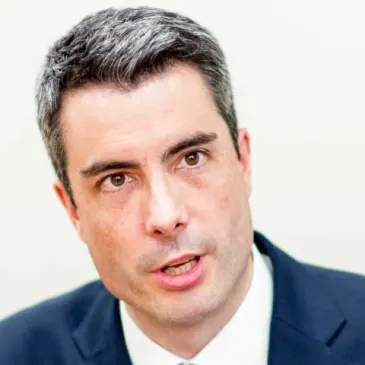The UK’s hospitality sector’s enjoyment of the removal of legal trading restrictions on 19 July was short-lived, as legal restrictions have been replaced by more practical restrictions such as not having enough staff as they have been “pinged” by the track-and-trace process. Whilst this new disruption is creating operational challenges, we have seen the release of the much-forecast pent-up consumer demand with operators reporting positive performance where sites can operate at full capacity.
The delay to Freedom Day will have triggered rapid revisions to management forecasts and cashflow modelling and further intensified the pressure on businesses that have endured 16 months of closure or severely disrupted trading.
More positive news followed the announcement of the delay, with an extension of the moratorium on commercial property evictions over unpaid rent to next March, but this delay is another part of the debt pile puzzle that needs to be solved as the sector emerges from the crisis. Management teams and investors will need to be more aligned than ever to ensure they have a grasp of the bigger picture.
Notwithstanding the stuttering easing of restrictions, we have reached a point where operators are starting to look beyond their 12-week cash flow modelling, which until now has for so many, for so long, been the focus: cash preservation and winning the right to survive. With the industry now able to embark on restriction-free trading, there is clearly a need for more forward-looking plans and projections, encompassing future opportunities and the successful navigation of the path to robust recovery. In other words, and to borrow a phrase from UKHospitality CEO Kate Nicholls, it’s how the industry emerges from the shadow of the crisis and side-step an “economic long-Covid”.
Central to this recovery and future success, more than ever, is people. Not only battered and fatigued operations teams but senior management, be they owner-entrepreneurs or hired experienced managers and leaders. Many whom own, or have skin in, a business will have suffered a significant financial and, for some, psychologically overwhelming hit. These leaders and managers need to be motivated to commit the time, effort and unsociable hours that are necessary to ensure their business can recover as quickly as possible and benefit in full from the recovery in demand.
The need for pragmatism
The scale of capital available in the market combined with increased confidence over the strength of the recovery in demand has provided a welcome boost to sector valuations. We have started to see this translate into deal activity with the acquisition of Leon by the Issa brothers and the investment in Itsu by Bridgepoint.
However, whilst this recovery in value is welcome, a great number of businesses are now encumbered with substantial levels of debt, built up during the pandemic in order to preserve sufficient liquidity to survive. This debt has eaten into equity values and created a big hurdle to overcome before shareholders can start to rebuild value. This scenario presents a significant challenge where the shareholders are also the managers of the business. These individuals have to summon the motivation and energy to go again, to rebuild their businesses and (for some) their life’s work.
If the debt burden is too high, there is the very real scenario that management will be working for the next few years to recover money primarily for their lenders and creditors, and not rebuilding value in their own equity stakes. Whilst this is just the fact of the situation and what people signed up for when signing financing documents, the risk is that if the sharing of value recovery is not amended to ensure alignment of interests, lenders and shareholders will be left with a demotivated management team, or even the need to find a new team, right at the time they need their zest most.
As we get back to ‘normal’ operations, management teams and investors will necessarily have to gauge where value may be now and where it may recover to in the future with good management, plus what constitutes a fair distribution of that value to creditors, shareholders and management. There is a need for everybody to step back, rebase and be pragmatic; to acknowledge and accept the fact that this crisis wasn’t anybody’s fault – and to understand that the best way to recover value for everyone is a highly-motivated and properly incentivised management team, willing to take risks to grow again (think new site openings, technology investment, M&A or new markets).
Reset moment
Significant effort now needs to be put in to try and achieve fair returns for stakeholders and managers who have been supportive. There needs to be frank conversations on what is achievable and equitable – and what each party can expect in return. None of this is easy and, in the end, everyone has to give something. It requires a flexibility of mindset and willingness to compromise.
Of course, this means that lenders, shareholders and management teams need to be on the same page; this can be a reset moment for all stakeholders. They may take their cues from examples witnessed in the global financial crisis which saw some investors double down on their investments to make sure those incentives were in place. For example, one of global private equity firm Blackstone’s biggest ever returns was after it had acquired Hilton Hotels at the peak of the market just before the crash. It stuck with the business, doubled down on its investment through the crisis and when value bounced back strongly, Blackstone more than tripled its investment once it completed its exit.
With the dial finally moving from survival mode to recovery and rebuild, businesses absolutely require everyone to be aligned to set them up for success. This process can be distracting, so the time to ensure this alignment is now; so that the business, its managers and its stakeholders are all fully focused on securing as much value as possible from the recovery. Those that do not grab hold of the issue now may struggle to avoid the debilitating effects of an economic long-Covid.
An earlier version of this article was previously published in Propel


